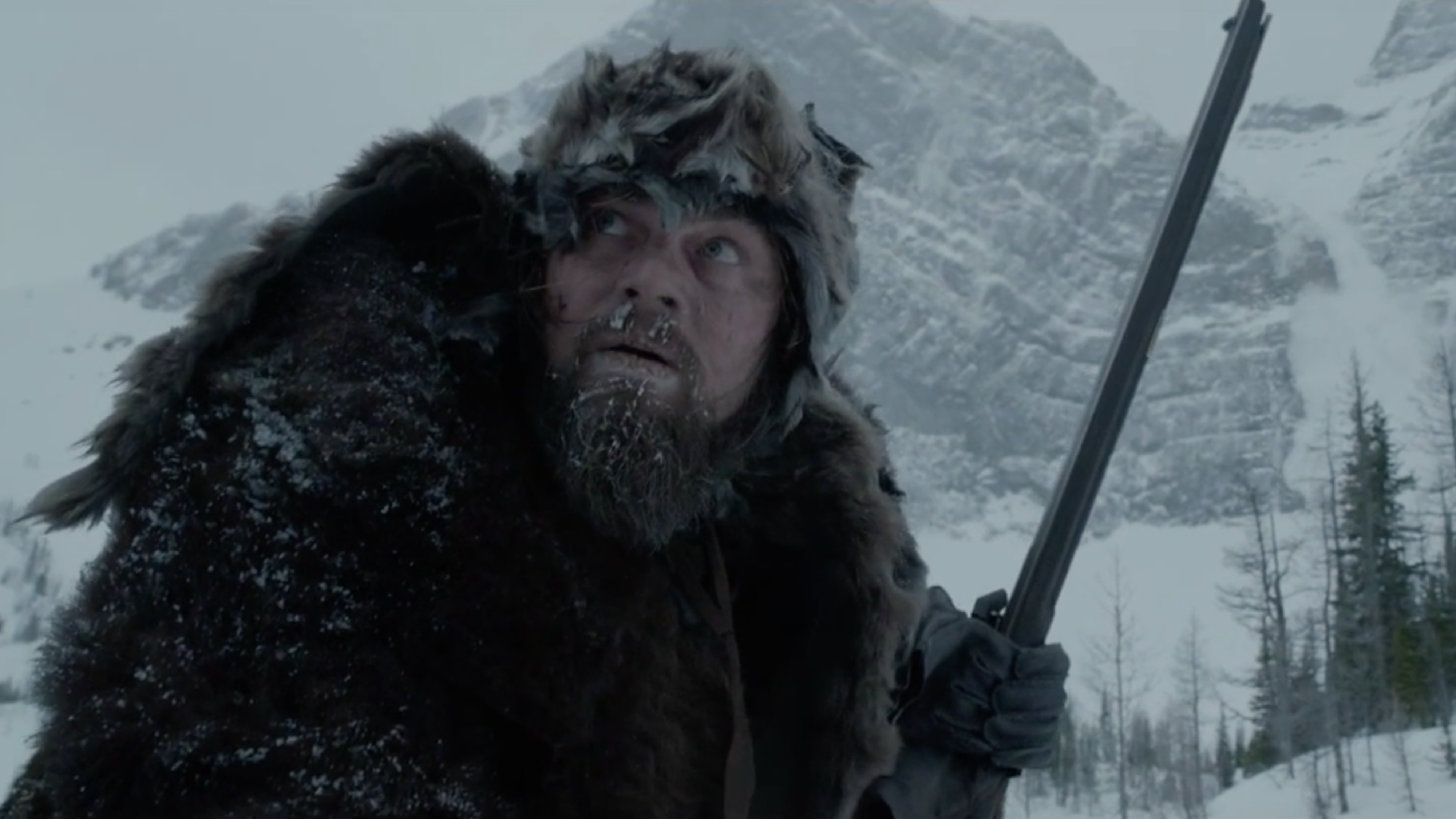WARNING: This review contains spoilers.
The Revenant is brutal. There’s no getting around it. Throughout Alejandro González Iñárritu’s latest film, a two-and-a-half-hour period piece about revenge and endurance within the uncharted wilderness of the Louisiana Purchase, you come face to face with every despicable and horrifying aspect of life in a world that wasn’t built for settlers and frankly doesn’t want them. There’s no question that it’s hard to watch, but if you turn away from The Revenant’s unflinching realism, you’ll miss much of the film’s brilliance. Yes, there are impressive action scenes and enough blood to make even the strongest stomachs turn, but the true drama lies in small looks and quiet landscapes.
On its surface, The Revenant is a tale as old as time—a scorned man travels through physical and emotional hell to seek revenge on the heartless bastard who killed his son in cold blood—but it’s Iñárritu’s confident direction and Emmanuel Lubezki’s severe cinematography that ensure that this film isn’t just Gladiator 2 or Kill Bill Volume 3. There are no grand speeches explaining why John Fitzgerald (Tom Hardy) needed to stab Hugh Glass’s (Leonardo DiCaprio) son, Hawk, in front of his mauled father; instead there are just sublime shots of untouched terrain to signify how far our hero needs to go to settle the score. And there are no zinging one-liners from Glass once he tracks Fitzgerald down in the final minutes of the film, because his heavy and weary steps toward the coward project all the strength the audience needs to feel. We know how the film is going to end before the theater lights dim—“the revenant” means someone who has returned from the dead—but Iñárritu is more concerned with exposing the beauty and fear in both Glass’s and Fitzgerald’s clashing fights for survival.
After the film’s chaotic and terrifying start—in which the Arikara tribe ambushes Captain Andrew Henry’s (Domhnall Gleeson) outfit and Glass is almost completely ripped apart by a mother grizzly bear who is very protective of her cubs—The Revenant’s major action shifts to a moral dilemma: Does the hunting party try to save their comrade who is coughing up blood and wheezing his (probably) final breaths? Or does the Darwinian adage of “survival of the fittest” trump all? Gleeson’s supporting performance is masterful as he waffles between being a strong, by-the-book leader who should kill Glass to save the group and a young, shaken officer who can’t bear to watch as another one of his troops dies under his command. His compassion (or weakness, depending on how you look at it) keeps Glass alive, and Fitzgerald’s need for money makes him one of the men chosen to stay behind and give Glass a proper burial when he finally does succumb to his injuries.
It’s sickening to watch two men try to fight for lives that neither of them can return to, but it’s that uneasiness that rekindles our compassion and grace.
Hardy, who is burdened with most of the film’s dialogue, humanizes Fitzgerald as a headstrong man determined to outrun his disastrous past and break the chains of his financial debt. Fitzgerald isn’t used to taking orders—especially from a fresh-faced military officer—but he holds back from tearing Henry a new one because he knows that he is his key to a payday. Hardy’s nuanced body language shows Fitzgerald’s vulnerability and belies how his fear of ending this expedition empty-handed led him to murder Hawk and leave his father for dead.
Even as Fitzgerald tries to convince himself that Glass wants to be smothered to death on his makeshift stretcher—“You just gimme a blink if you want me to do it”—Glass refuses to give up and maintains unbroken eye contact with his enemy. He can’t speak because the grizzly slashed his throat, but his piercing gaze is louder and more effective than any scream he could utter. It’s no secret that DiCaprio’s dedication to this role was unparalleled (he ate a real piece of raw bison liver on film for authenticity’s sake), but it’s the simple acting behind his eyes that’s most effective. His full emotional power comes at the start of his journey back from the dead—once the abandoned Glass escapes from his improvised grave, he uses all of his strength to crawl over and touch the body of his slain son. He gently touches Hawk’s frozen face, puts his head next to his, and looks at him with the all the admiration and love of a heartbroken parent.
These small moments interspersed with gorgeous shots of immaculate earth aren’t as flashy as when DiCaprio climbs into a dead horse’s body for warmth or when the game of cat and mouse finally comes to an end, but they are what makes the harrowing struggle of The Revenant more than just a couple of hours of entertainment with high shock value and heinous behind-the-scene anecdotes. There’s no satisfaction in Glass finally catching Fitzgerald, both of them dripping blood all over the carpet of once-pure snow, because both characters have been pushed to the limits of their humanity. It’s sickening to watch two men try to fight for lives that neither of them can return to, but it’s that uneasiness that rekindles our compassion and grace. Don’t avoid the raw pain of The Revenant because it makes you uncomfortable; it might just thaw your cold heart. FL







